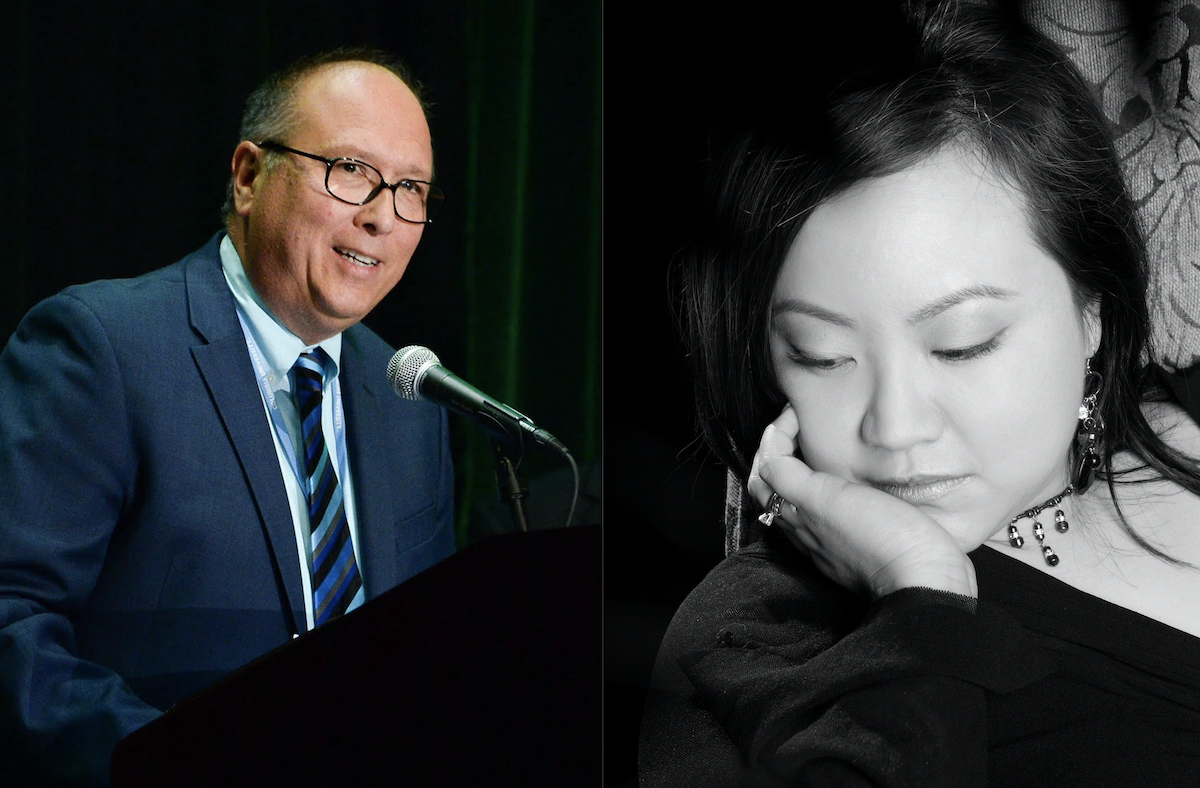UPDATE FROM THE JCAMP DIRECTORS:
It was our profound hope to push forward with JCamp 2020 programming while keeping our students, faculty and guest speakers safe. It is clear now, given recent events with the Covid-19 pandemic, that we cannot responsibly proceed with JCamp this summer.
We want those who applied to know several things:
- We didn’t make this decision easily or without a deep sense of sadness. JCamp is the highlight of our year, and we were eager to get the chance to work with all the applicants. In the end, our top concern is the health and safety of our students. Our university partner, Georgetown, has reached the same conclusion and also announced the cancellation of summer activities on its campus.
- We are continuing to review applications and will give a subset of students the opportunity to reserve a spot in the JCamp Class of 2021. If selected, students will be asked to accept or decline, with the chance to confirm their acceptance early next year. For anyone who is not admitted this time, we strongly encourage them to apply again in 2021. This was our most competitive class in two decades. Either way, applicants should expect a notification from us before the start of summer.
-The JCamp Directors: Arelis, Ben and Timmy
JCamp is a six-day intensive, multicultural journalism training program for high school students. Students learn from professional journalists and get hands-on training in writing, reporting, photography, television and radio broadcasting, online media and data journalism. Sessions and workshops are led by experienced journalists from top media companies. JCamp is an all-expenses-paid program with travel, meals and lodging covered by AAJA’s donors and partners.
JCamp 2020 will be hosted by Georgetown University in Washington, D.C. July 5-10. Selected students will stay in dorm-style suites at Georgetown University, supervised by adult chaperones at all. times. The deadline to apply is Sunday, March 29.
THE DEADLINE FOR JCAMP HAS PASSED.
Eligibility & Required Materials: AAJA welcomes applications from all students regardless of race, ethnicity, country of origin, religion, socioeconomic status, gender, gender identity, sexual orientation or political affiliation. JCamp is open to high school students currently in their freshman, sophomore or junior year. Before you begin, please make sure you gather all of the information you will need.
Eligibility
- Must be a high school student currently in your freshman, sophomore or junior year.
- Must be a citizen, national or legal permanent resident of the U.S. You may apply if you are attending an international high school, however you must be available to travel to and from JCamp from within the U.S. on the camp dates (AAJA will not cover any international travel).
Required Materials
Collect the following materials BEFORE you begin. You will not be able to submit your application without them. Please be aware that the JCamp application should be completed by the student, not by a parent/guardian, teacher or advisor.
- Your most recent high school transcript (PDF or JPG)
- A letter of recommendation (PDF or JPG) or permission from a teacher, advisor or counselor to give you their email address to be contacted for a letter of recommendation
- Two essays answering the two questions below (each approximately 250 words in length):
- A) If you had your own Netflix special or talk show on YouTube, who would you interview, what would you ask, and why?
- B) Why do you think you should be selected for JCamp?
- Work samples and a YouTube video introducing yourself are encouraged, but not required, and should be submitted as links or PDFs in the space provided on this application.
Deadline
The deadline to apply is Sunday, March 29 at 11:59pm PT. AAJA will not accept late applications. Please gather your materials and teacher recommendation as soon as possible before beginning your application.
MORE ABOUT JCAMP
AAJA’s JCamp is a national multicultural journalism program for high school students. The six-day training camp brings together culturally diverse students from across the nation to learn from veteran journalists and leading media executives. JCamp participants will receive hands-on training and produce multiplatform news packages for Facebook and the program’s news site, JCamp Live.
JCamp’s goal is to develop the next generation of journalists. This six-day training camp brings together a multicultural group of high school students from across the nation to sharpen their journalism skills and work together in a unique learning environment. The curriculum consists of interactive workshops, hands-on training and field trips.
Selected students demonstrate a keen interest in broadcasting, newspaper, magazine, photojournalism or online media. This program is not limited to Asian American students, but to all high school freshmen, sophomores and juniors. There is no fee to apply and all costs are covered — including airfare, lodging and meals. Students stay in university housing during the camp week.
JCamp strives to confront the lack of diversity in journalism, in regards to race, socioeconomics, geography, religion, sexual orientation and identity. The camp strives to ensure excellence in the profession for decades to come. Through this culture of excellence and diversification, JCamp cultivates the voices and views of our future media leaders on government, human interest, entertainment, recreation, science, medicine, and national and international news.
The curriculum focuses on teaching and ingraining the following core principles:
- The Value of Cross-Cultural Communication Skills – This heightened awareness comes from interactions with peers and mentors from completely different environments and backgrounds, along with training in the basics of effective interpersonal skills and the importance of creating inclusive environments as colleagues and journalists.
- The Fundamentals of Leadership – Faculty work with students on persuasive communication skills, teamwork, professionalism, project management, developing a personal identity and accountability.
- The Importance of Diversity in the Newsroom and in Media Coverage – JCamp fosters an appreciation for diverse viewpoints and reporting in diverse communities. Students also learn why it is important that media outlets reflect the communities they cover.
- Strong Ethics in Journalism Practice – Students gain an understanding of the universal ethics of good journalism and the responsibilities of the media to cover communities with sensitivity and high standards.
- The Value of Networking & Career Mapping – Regardless of a student’s eventual career choice, each will go home with an understanding of how to pursue a profession and an appreciation for the importance of networking and building relationships with mentors and peers.
JCamp speakers have included Hoda Kotb, co-host of NBC’s “Today Show;” David Rhodes, president of CBS News; Chuck Todd, host of “Meet the Press;” Bob Schieffer, former CBS News’ “Face the Nation” moderator; Jill Abramson, former executive editor of the New York Times; Touré, former co-host of “The Cycle” and author of “Who’s Afraid of Post-Blackness?”; Bill Whitaker, CBS News’ “60 Minutes” correspondent; Cheryl Diaz Meyer, Pulitzer Prize-winning war photographer; Kevin Merida, senior vice president of ESPN and editor-in-chief of “The Undefeated;” and the late Gwen Ifill, host of “Washington Week” and “PBS NewsHour.”
Since the first JCamp in 2001, more than 700 of the nation’s brightest young people have graduated from JCamp. Some of the graduates of JCamp have gone on to become professional journalists. A few of these alumni include:
- Terrell Brown, JCamp 2002: After attending JCamp, Brown was awarded a full scholarship for broadcasting excellence by the National Press Club. In 2009, at age 22, Brown was named a CBS News correspondent — the youngest in that network’s history.
- Jessica Carballo, JCamp 2004: Carballo won the Sun-Sentinel Correspondent of the Year Award, the Sun-Sentinel scholarship upon high school graduation, and she was the Miami Herald Silver Knight Winner in Journalism. She worked as a ABC production intern at WPLG-TV in Miami and is a 2010 graduate of Yale University.
- Arelis Hernandez, JCamp 2004: Hernandez graduated in 2009 from the University of Maryland, majoring in broadcast journalism. During her senior year at the university, Hernandez was named to the select list of the Top 100 Student Journalists in the country. She is now a border correspondent for for The Washington Post and a JCamp co-director.
- Hailey Lee, JCamp 2009: Lee studied at Wellesley College and founded WCTV, the school’s satire news show. She interned at Crain’s Chicago Business before being hired permanently at CNBC. She is now an economics producer and has served as a board member for UNITY: Journalists for Diversity.
- Taylor Turner, JCamp 2010: Turner studied broadcast journalism and political communications at The University of Texas at Austin while also interning at ESPN and participating as a video journalist for The New York Times’ Student Journalism Institute in 2015. Turner worked as a production associate at ABC News before her current position as a video editor at The Washington Post.
- Ben Bartenstein, JCamp 2011: Bartenstein graduated from Macalester College in 2015 and also participated in AAJA’s VOICES journalism training program for college students. He is now reporter for Bloomberg and a JCamp co-director.
Questions about JCamp? Contact Daniel Garcia, AAJA Program Coordinator, at danielg@aaja.org.





Published by